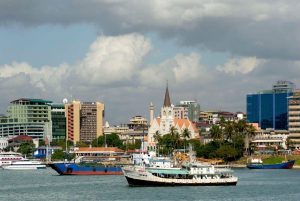Businesses have received a boost during this COVID-19 period after the Central Bank of Kenya (CBK) released Kes. 35.2 billion as additional liquidity availed to banks to directly support borrowers distressed by the pandemic.
Furthermore, CBK lowered the Central Bank Rate (CBR) to 7.25 percent from 8.25 and reduced the Cash Reserve Ratio (CRR) to 4.25 percent from 5.25 percent.
CBK Governor Dr. Patrick Njoroge, who is also the Chairman of the Monetary Policy Committee (MPC) said that they will ensure that the interbank market and liquidity management across the sector continue to function smoothly.
“The MPC will closely monitor the impact of this change to its policy stance, as well as developments in the global and domestic economy, and stands ready to take additional measures as necessary. In this regard, the Committee decided to reconvene within a month for an early assessment of the impact of these measures and the evolution of the COVID-19 pandemic.” He said.
The Coronavirus which broke out in December 2019 has so far caused global devastation to countries through loss of life and tremendous negative impact socially and economically.
Although the pandemic’s impact on the country’s economy is still evolving, he said, all signs show that it could be severe.
He further stated that the committee’s main focus is to minimise the economic and financial impact brought by the pandemic.
The committee noted that, “as a result of the pandemic, economic growth is expected to decline significantly in 2020, from a baseline estimate of 6.2 percent to possibly 3.4 percent, arising from reduced demand by Kenya’s main trading partners, disruptions of supply chains and domestic production. The fundamental concerns and anxieties centre on the health impact, job losses, and duration of the crisis. The ongoing interventions by the Government are aimed at containing the pandemic and moderating the economic and social impact.”
“The MPC Private Sector Market Perception Survey conducted in early March 2020
indicated that inflation expectations remained well anchored, mainly due to expected lower food and energy prices. However, respondents revised downwards their optimism on economic prospects, due to COVID-19 concerns. Nevertheless, they expressed a favourable outlook about the renewed focus on MSMEs and agriculture, payments of pending bills by the government, the decline in international oil prices, benefits from infrastructure investments, and improved lending to the private sector, “the committee stated.
The CBK governor also pointed out that global growth is highly uncertain but expected to weaken significantly in 2020, mainly due to the adverse direct and indirect impact of COVID-19 across the world. Trade flows have been significantly disrupted, while the continued volatility in international financial markets will worsen the outlook. In a shift of stance, central banks in the major advanced economies are implementing accommodative monetary policy to stabilise the financial markets and support economic growth.




